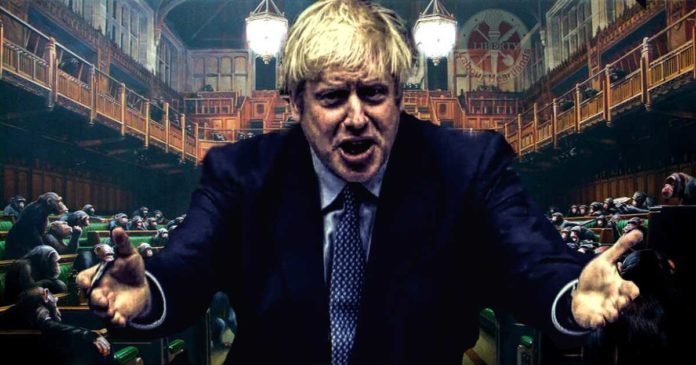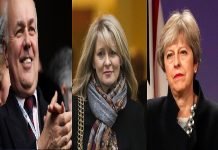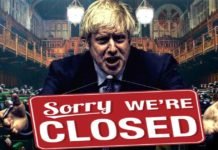
Boris Johnson has faced a double defeat in the Commons after MPs turned down his motion for a general election.
MPs backed a bill aimed at blocking a no-deal Brexit if the PM hadn’t agreed a plan with the EU ahead of the 31 October deadline.
Boris Johnson said the bill “scuppered” negotiations and the only way forward now was an election.
Labour’s leader Jeremy Corbyn accused the PM of “playing a disingenuous game” to force a no-deal Brexit.
He said his party would back an election after the bill had been passed, but not before.
All the opposition parties also criticised the prime minister’s motion as a plot to make sure the UK left the EU without a deal.
But supporters of Boris Johnson hit back at opposition members who had been calling for a general election for two years. Using the famous words thrown at Theresa May by Dennis Skinner they accused the Labour Party of being ‘frit’ Labour ignored the accusations stating they would only accept a General election once the No-deal bill becomes law.
Johnson wanted MPs to agree to an early general election on 15 October, saying the bill – which forces him to ask for an extension to the Brexit deadline if no deal had been agreed – left him unable to negotiate a deal.
He needed two thirds of all MPs to vote in favour under the Fixed Term Parliaments Act, but the result only saw 298 vote for the motion and 56 against – 136 short of the number he needed. The Labour Party abstained on the bill.
The bill to block no deal passed all its stages in the Commons in one day, with the support of most opposition parties and 21 Tory rebels, as they tried to push it through ahead of Parliament being suspended next week.
It will now go to the Lords for approval.
Peers are debating a business motion on how to move forward with the bill – but pro-Brexit peers have laid down over 100 amendments to derail its progress.
Speaking after the vote, the PM attacked Mr Corbyn, claiming he was “the first leader of the opposition in the democratic history of our country to refuse the invitation to an election”.
He said he “urged [Mr Corbyn’s] colleagues to reflect on the unsustainability of this position overnight and in the course of the next few days.”
Since becoming Prime Minister in July, Johnson has repeatedly said he didn’t want an early election.
He changed his tune after losing a key battle on Tuesday, when Parliament voted to seize the parliamentary agenda in order to push through a bill outlawing a no-deal Brexit.
That bill was debated and voted through earlier on Wednesday. Johnson said that taking the no deal option off the table means his negotiating position in Brussels would be weakened.
What does the no-deal bill say?
The bill says the prime minister will have until 19 October to either pass a deal in Parliament or get MPs to approve a no-deal Brexit.
Once this deadline has passed, he will have to request an extension to the UK’s departure date to 31 January 2020 – and, unusually, the bill actually includes the wording of the letter he would have to write.
If the EU responds by proposing a different date, the PM will have two days to accept that proposal. During that time, MPs – not the government – will have the opportunity to reject the EU’s date.
The bill also requires ministers to report to the House of Commons over the next few months. potentially providing more opportunities to take control of the timetable.
Be aware though, this could all change over the next few days because MPs and peers have the power to pass amendments to any law.
This is a "Pay as You Feel" website Please help keep us Ad Free.
You can have access to all of our online work for free. However if you want to support what we do, you could make a small donation to help us keep writing. The choice is entirely yours.
























